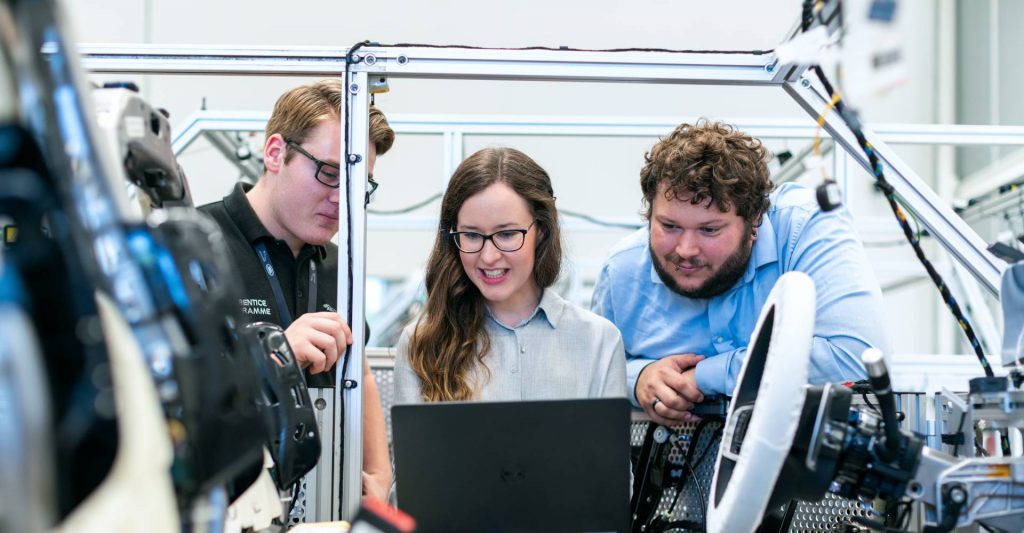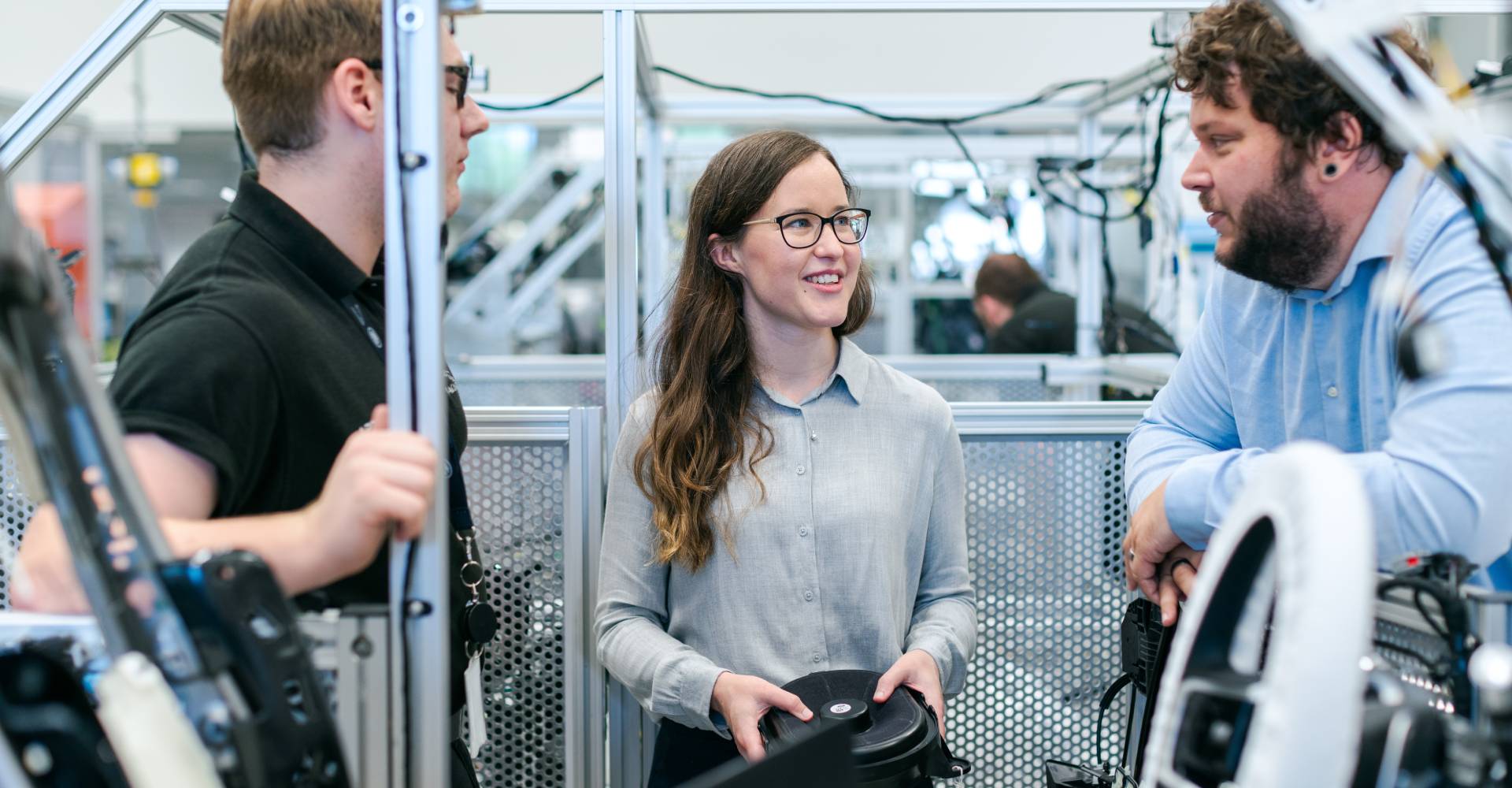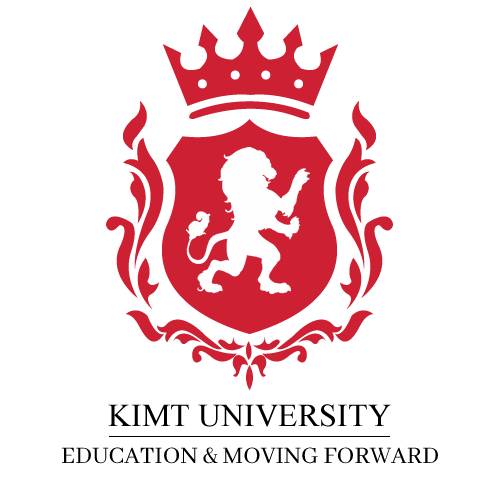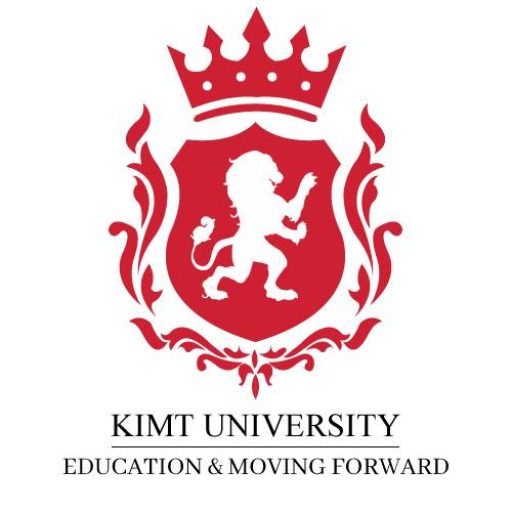PhD in Industrial Engineering
Program description

The Doctor of Philosophy in Industrial Engineering is primarily intended for a student with a master’s degree in Industrial Engineering or a closely related discipline.
The PhD program is designed to produce highly skilled researchers with both broad knowledge of industrial engineering and in-depth knowledge of specialty fields for careers in academia, industry, and government. The program allows a candidate to thoroughly study some aspect of industrial engineering, such as engineering management, systems operations and modeling, quality systems engineering, interactive simulation and training systems, systems engineering, and human systems engineering/ergonomics.
The Industrial Engineering program is structured to support the emergence of Estonia as a national center of high technology as well as supporting the diverse service industries in the region and throughout the nation
Students in the Industrial engineering Ph.D. program can register for courses and do research in different areas such as:
Human Systems Engineering/Ergonomics
As technology has become more sophisticated, the need to design for the human user has become more difficult, yet even more important. Human engineering and ergonomics assist in ensuring that as technology advances, the abilities, limitations, and needs of humans are considered in the system design. This not only supports the needs of the user, it also optimizes the efficiency and usability of the system designed. Traditionally, ergonomics has been associated with biomechanical issues and work measurement and performance issues in physical system design, as well as occupational and industrial safety. The broader focus of human engineering encompasses those issues as well as incorporating the reaction and effectiveness of human interaction with systems, both physical systems and virtual systems such as computer-based models.
Research in the Human Systems Engineering and Ergonomics area provides students with the necessary knowledge in human engineering and ergonomics to effectively design tasks, industrial systems, and work environments that maximize human performance, safety, and overall productivity.
Interactive Simulation and Training Systems
The Interactive Simulation and Training Systems research within the Industrial Engineering PhD program focuses on providing a fundamental understanding of significant topics relative to simulation systems and the requirements, design, development, and use of such systems for knowledge transfer in the technical environment. Courses in this area address the evolving and multiple discipline application of interactive simulation by providing a wealth of electives to support development of individual student interests and talents.
The emphasis is on the application and development of interactive simulation and training systems to meet various requirements including, but not limited to: simulators, skill trainers, organizational learning systems, computer and web-based interactive simulation systems and other novel interactive simulation efforts.
Management Systems/Engineering management
The Management Systems/Engineering Management research focuses on providing the knowledge for improving organizational systems. Engineering Management focuses on effective decision-making and successful project delivery in engineering and technological organizations. With technological advancements comes a new level of organizational complexity. As a result new knowledge is needed to help the technical organization understand how to improve. The Management Systems/Engineering Management studies and research in the Industrial Engineering program are intended for individuals of all engineering disciplines. Research and coursework focus on a systems view of engineering problems related to the management of complex industrial, military, government, and social systems.
Operations Research
The Operations Research courses in the Industrial Engineering PhD program uses mathematics and computer-based systems to model operational processes and decisions in order to develop and evaluate alternatives that will lead to gains in efficiency and effectiveness. Drawing on probability, statistics, simulation, optimization, and stochastic processes, Operations Research provides many of the analytic tools used by industrial engineers as well as by other analysts to improve processes, decision-making, and management by individuals and organizations.
Quality Engineering and Management
Quality Engineering research in the Industrial Engineering PhD program focuses on providing the knowledge for improving product and process quality in manufacturing and service industries. Quality Systems Engineering provides both the quantitative tools for measuring quality and the managerial focus and organizational insight required to implement effective continuous improvement programs and incorporate the voice of the customer. The Quality Systems Engineering courses provide the necessary knowledge to plan, control, and improve the product assurance function in government, military, service, or manufacturing organizations.
Simulation Modeling and Analysis
The Simulation Modeling and Analysis research and studies in the Industrial Engineering PhD program focus on providing a fundamental understanding of the functional and technical design requirements for simulation in manufacturing and service industries. Research in this area is based on a systems modeling paradigm and provides coding and development capability in the context of a broader systems framework. Significant exposure to design and analysis aspects is a core element of the track.
Systems Engineering
Intelligence is being infused into everyday systems, processes and infrastructure that enable physical goods to be developed, manufactured, bought and sold. These same systems also facilitate the movement and delivery of global products and services that support worldwide markets such as finance, energy resources and healthcare systems.
With these technological advancements, comes a new level of complexity as organizations struggle to integrate systems, processes and data feeds. As a result, the demand for systems engineering and related skills is expected to grow significantly.
Systems engineers design and implement computer systems, software and networks, including defining complex system requirements, and determining system specifications, processes and working parameters.
The Systems Engineering studies and research in the Industrial Engineering PhD program are intended for individuals of all engineering disciplines. Research and coursework focus on a systems view of engineering problems related to the management of complex industrial, military, government, and social systems.
PROGRAM CURRICULUM
The PhD qualifications are terminal degrees. The PhD is a research doctorate, requiring course-work beyond the Masters level plus research and dissertation contributing to theory or practice in relation to the discipline as well as to development of professional practice by contributing to field-specific knowledge and hence impact practice beyond research.
The PhD curriculum consists of 240 ECTS credits of postgraduate study, offered as modular fashion. PhD-candidates transfer 60 ECTS credits from the Master (MPhil/MSC) degree, and need to complete 3 mandatory course work (60 ECTS) and complete the PhD programme by a final Thesis/Dissertation (120 ECTS credits) focused on a specific field or industry of management.
REQUIRED COURSES – – 240 CREDIT HOURS
What You'll Study
Applicants have to submit research proposal with detailed description of his/her research area. Upon approval with the supervisor student will be allowed start its dissertation work. Applicants are asked to contact admission committee to know more about research proposal prior to start the program.
Dissertation Grading Criteria
| Criteria | Credits | Research and Purpose | 18 |
|---|---|
| Development | 18 |
| Organization | 17 |
| Material Source | 17 |
| Sentence Structure | 17 |
| Diction | 17 |
| Grammar and Mechanics | 16 |
Admissions
The Ph.D. program follows the general admission requirements and procedures with the following additional requirements and procedures.
- The entry requirements are a graduate degree of at least 300 ECTS credits in total, an MPhil, MSc, or comparable Masters Degree, or equivalent qualifications at EQF level 7B, or in a functional field by examination awarded by a professional body.
- Candidates must have 3(+) years of professional experience.
- We may also ask for significant experience in a supervisory position involving responsibility for decision making.
Decisions regarding admission to the doctoral program will be made on the basis of the applicant’s academic qualifications and achievements, fit with the program’s areas of specialization, demonstrated interests and capacity in a scholarly and/or applied research within the chosen specialization, and the availability of an appropriate supervisor.
Personal Statement

At the time of application, prospective students should submit a personal statement (Maximum4 pages), including:
- Potential research interests
- Relevant research, volunteer, and work experience
- Career objectives and long-range goals
- Academic honours, awards, and/or scholarships
- A list of publications, conference papers, and/or technical reports (If any)
- University committee work, and any other information that is relevant to the application.
PhD programme duration
3 study years full time (can be completed in 2 years with 60 transfer credits) 60 ECTS in coursework plus 120 ECTS for PhD Thesis
Programme modality
Online PhD programme.
Duration and workload of a course

Successful completion of a course with a workload of 20 ECTS credits is estimated to be approximately 500 hours. Students should allocate approximately 13 hours a week for reading, personal study, completion of reflection activities and submission of assignments. There is one marked assignment per module.
Study language
The programme is conducted in English proficiency is required for the PhD programme.
Supervisor

In admitting students to the program, the Ph.D. Program Council will take into account the availability of potential dissertation supervisors. During the first two years in the program, students in consultation with the Ph.D. Program Coordinator will be designated a supervisor who will assist in the development of the student’s dissertation topic. The assignment of a supervisor will occur no later than two months following the successful completion of the student’s comprehensive examination. The supervisor will be appointed on the basis of his or her expertise in relation to the student’s dissertation. Where a student in the program has identified an appropriate supervisor, every effort will be made to ensure that he or she is appointed as the supervisor.
Assessment
KIMT will carry out the internal assessment. On this course, you’ll be assessed by coursework in your first year (or second year for part-time students). The degree is awarded when you submit your thesis and successfully defend it by oral examination (viva-voce) at the end of your research.
Overall workload
Your overall workload consists of contact hours (lectures, seminars, research group meetings and meetings with your supervisor), independent learning and assessments. For full-time students, the workload should be roughly equivalent to a full-time job. For part-time students, this will reduce in line with the amount of time you have allocated to complete the programme.
Feedback summary
Once you submit your dissertation, it normally takes three months for the thesis to be reviewed by an examination team. The viva exam normally takes place towards the end of this three-month period.




